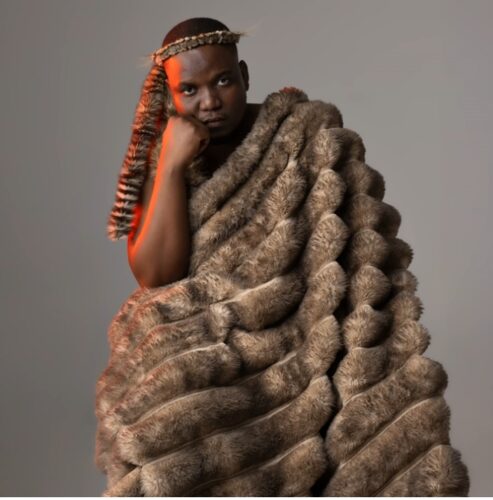
“Unamanga” by Mnqobi Yazo featuring Thee Legacy is a heartfelt fusion of Afro-soul, Maskandi, and contemporary African pop — a song that explores themes of love, deception, and emotional vulnerability. In this soulful collaboration, Mnqobi once again proves his mastery in storytelling through music, while Thee Legacy’s signature harmonies add a rich traditional flavor that elevates the emotional depth of the track.
Mnqobi Yazo recently appeared on Makasane.
The title, “Unamanga,” translates to “You’re lying” or “You’re not telling the truth,” setting the stage for a song built around heartbreak and confrontation. Mnqobi’s lyrics carry the weight of betrayal — expressing the pain of realizing that someone he trusted has been dishonest in love. His delivery is both soulful and piercing, weaving Zulu lyricism with heartfelt emotion that feels authentic and raw.
The production strikes a perfect balance between modern and traditional elements. Deep percussive rhythms, acoustic guitar lines, and layered vocal arrangements create a warm, organic soundscape that complements the song’s sincerity. The instrumental feels grounded in African musical heritage, yet polished enough to resonate with contemporary audiences.
Thee Legacy’s contribution is particularly powerful — their harmonies glide seamlessly alongside Mnqobi’s expressive vocals, creating a dialogue that feels both emotional and communal. Their presence reinforces the sense of lament and cultural depth, bringing a choral richness reminiscent of traditional Zulu isicathamiya music. Together, they form a vocal blend that captures both the pain and poetry of the song’s message.
Lyrically, “Unamanga” is about confronting false love — when the heart still yearns for answers, even after the truth has been revealed. Mnqobi’s storytelling is vivid and cinematic; he doesn’t just narrate the heartbreak but embodies it, turning the emotional tension into a musical confession. The hook, carried by both Mnqobi and Thee Legacy, repeats with haunting beauty — it’s accusatory yet sorrowful, the sound of love turned to disbelief.
Emotionally, the song moves through phases — from hurt to reflection to quiet acceptance. While the tone is melancholic, there’s also a sense of closure and emotional release. It’s not just about loss; it’s about the courage to face the truth and move forward with dignity.





